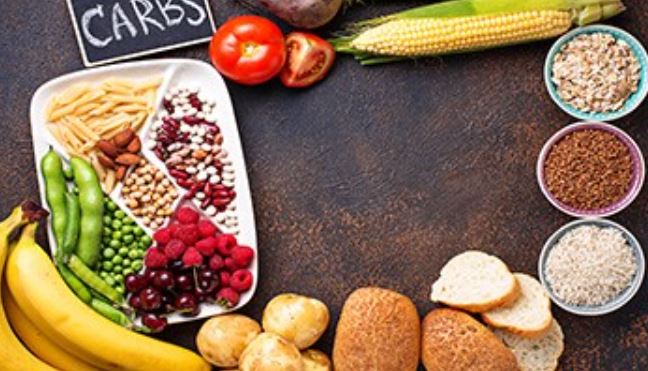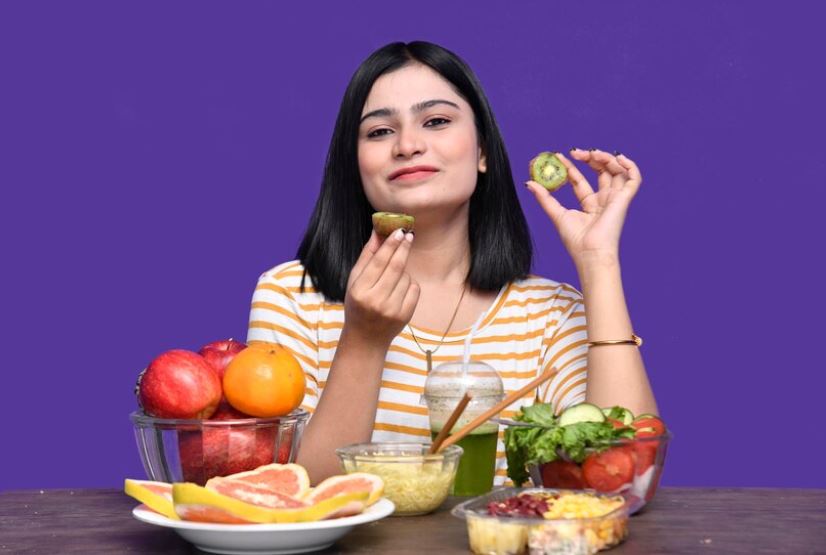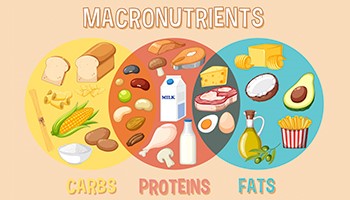14 Healthy High Carb Foods

People around the world have different opinions about are carbohydrates good for health? Some people think that regular consumption of carbs causes weight gain, type 2 diabetes, and a variety of other health conditions. Others believe carbs are important for providing energy to the body, fueling brain function, supporting physical activity, maintaining blood sugar levels, and aiding in the metabolism of fats and proteins.
It all depends on the source of carbs; processed foods are the high carb foods to avoid as they are high in sugar and less in important vitamins and minerals. But there are healthy carbohydrate foods that can be incorporated into your diet. In this blog, we will understand some
Here is the List of Healthy High Carb Foods:
1.Quinoa
Carbs content – 21g/100g of cooked quinoa (1)
Quinoa is a versatile pseudo-cereal known for its exceptional nutritional profile. It is gluten-free, high in carbs, protein, fiber, vitamins, and minerals like iron and magnesium. As a complete protein source, quinoa supports muscle repair and growth. Its high fiber content aids digestion and promotes a healthy gut microbiome. Quinoa is also excellent for managing blood sugar and heart health.
2. Oats
Carbs content – 67.7g/100g of raw oats (2)
Oats are whole grains commonly consumed as oatmeal or rolled oats. They are rich in fiber, particularly beta-glucan, which aids digestion and helps lower cholesterol levels. Oats also provide complex carbohydrates, protein, vitamins, and minerals like iron and magnesium.
Their low glycemic index makes them suitable for managing blood sugar levels. Regular oat consumption can promote heart health, support weight management by inducing satiety, and improve gut health. Additionally, oats contain antioxidants, which may reduce inflammation and lower the risk of chronic diseases. Overall, oats offer a nutrient-dense and versatile addition to a healthy diet.
3. Bananas
Carbs content – 22.8g/ 100g of banana (3)
Bananas are a very common fruit part of many people’s regular diet. They are rich in carbohydrates, particularly natural sugars like glucose, fructose, and sucrose, providing quick energy. Bananas also contain fiber, vitamins C and B6, potassium, and manganese. Their potassium content supports heart health and regulates blood pressure. Additionally, bananas aid digestion due to their fiber content and prebiotic properties.
4. Sweet Potatoes
Carbs content – 20.7g/ 100g of sweet potatoes (4)
Sweet potatoes are root vegetables with a sweet taste and vibrant orange flesh. They are rich in complex carbohydrates, fiber, vitamins A and C, potassium, and antioxidants like beta-carotene. Their high fiber content promotes digestive health and aids in weight management by inducing satiety. Additionally, the antioxidants in sweet potatoes support immune function, reduce inflammation, and protect against chronic diseases.
5. Beets
Carbs content – 9.56g/100g of raw beet (5)
Beets, also known as beetroot, are root vegetables with a deep red-purple color and a sweet, earthy flavor. They are rich in fiber, vitamins C and B9 (folate), manganese, potassium, and antioxidants like betalains and nitrates. Beets support heart health by lowering blood pressure and improving blood flow due to their high nitrate content which is converted into nitric oxide. Beets also have anti-inflammatory and detoxifying properties, offering numerous health benefits when incorporated into a balanced diet.
6. Oranges
Carbs content – 15.5g/ 100g of orange (6)
Oranges are citrus fruits known for their bright orange color, tangy flavor, and juicy texture. They are rich in vitamin C, providing over 100% of the recommended daily intake in just one fruit. Their high vitamin C content supports immune function, collagen production, and skin health. Oranges may also lower the risk of heart disease, improve digestion, and help regulate blood sugar levels. Additionally, the antioxidants in oranges may reduce inflammation and protect against chronic diseases like cancer.

7. Blueberries
Carbs content – 14.5g/100g of blueberries (7)
Blueberries are small, round berries with a deep blue-purple color and a sweet yet tangy flavor. They are packed with nutrients, including vitamins C and K, manganese, and antioxidants like flavonoids and anthocyanins. Their antioxidants protect against oxidative stress and inflammation, reducing the risk of chronic diseases like heart disease and cancer. Blueberries also support brain health, cognitive function, and may help improve memory and reduce the risk of age-related cognitive decline.
8. Grapefruits
Carbs content – 7.5g/100g of grapefruits (8)
Grapefruits are citrus fruits known for their tangy flavor and slightly bitter taste. They are rich in vitamin C, providing over 70% of the recommended daily intake in just one fruit. Grapefruits also contain fiber, potassium, antioxidants like flavonoids, and phytochemicals such as limonoids. Their high vitamin C content supports immune function and collagen production, while the antioxidants help reduce inflammation and protect against chronic diseases like heart disease and cancer.
9. Apples
Carbs content – 15.g/100g of apple (9)
Apples are popular fruits with a crisp texture and a sweet or tart flavor, depending on the variety. They are rich in fiber, particularly pectin, which aids digestion and promotes gut health. Apples also contain vitamins C and K, as well as antioxidants like flavonoids and quercetin. Their high fiber content helps regulate blood sugar levels and cholesterol, supporting heart health. Additionally, apples may aid in weight management by promoting satiety and reducing calorie intake.
10. Kidney Beans
Cabs content – 21.5g/ 100g (10)
Kidney beans, also known as rajma, are legumes popular for their mild flavor and creamy texture. They are rich in protein, complex carbohydrates, fiber, vitamins, and minerals. Kidney beans provide essential nutrients such as iron, potassium, folate, and magnesium. Their high fiber content promotes digestive health, aids in weight management, and helps regulate blood sugar levels.
Kidney beans are also a good source of plant-based protein, making them an excellent choice for vegetarians and vegans. Additionally, they support heart health by reducing cholesterol levels and may lower the risk of chronic diseases like diabetes and certain cancers.
11. Chickpeas
Carbs content – 27.4g/100g of chickpea serving (11)
Chickpeas, also known as garbanzo beans, are legumes widely used in various cuisines. They are rich in protein, complex carbohydrates, fiber, vitamins, and minerals. Chickpeas provide essential nutrients such as iron, folate, phosphorus, and magnesium. Their high fiber content supports digestive health, aids in weight management, and helps regulate blood sugar levels. Chickpeas are also a good source of plant-based protein, making them an excellent choice for vegetarians and vegans.
12. Lentils
Carbs content – 39.8g/100g of lentil serving (12)
Lentils are legumes known for their lens-shaped seeds and versatility in cooking. They are rich in protein, complex carbohydrates, fiber, vitamins, and minerals. Lentils provide essential nutrients such as iron, folate, potassium, and magnesium. Their high fiber content supports digestive health, aids in weight management, and helps regulate blood sugar levels. Lentils are also a good source of plant-based protein, making them an excellent choice for vegetarians and vegans.
13. Corn
Carbs content – 18.7g/100g of corn serving (13)
Corn is a cereal grain commonly consumed worldwide. It is rich in carbohydrates, primarily starch, providing energy to the body. Corn also contains fiber, vitamins such as B vitamins and vitamin C, and minerals like magnesium and potassium.
While it’s not as nutrient-dense as some other vegetables, corn offers health benefits due to its antioxidants like lutein and zeaxanthin, which promote eye health. Additionally, corn provides dietary fiber, which supports digestion and may help lower cholesterol levels.
14. Brown Rice
Carbs content – 23.5g/100g of cooked brown rice (14)
Brown rice is a whole grain rice with the outer bran layer intact, giving it a nutty flavor and chewy texture. Compared to white rice, brown rice is higher in fiber, vitamins, and minerals. Its benefits include improved digestion, better weight management, and reduced risk of chronic diseases like heart disease and diabetes.
Conclusion
While there is a misconception that all carbs are detrimental, many of the most nutritious foods are carbohydrate rich. Nonetheless, those following low-carb diets should moderate their carb intake. Refined carbs like white bread and pasta can be unhealthy when consumed excessively. Yet, incorporating these wholesome carbs into a balanced diet is beneficial.
FAQs
1.What is the healthiest carb you can eat?
Quinoa is often considered one of the healthiest carbs due to its high protein and fiber content, along with essential vitamins and minerals. It offers numerous health benefits, making it a nutritious addition to meals.
2. Is High carb bad for you?
High carb diets can be unhealthy if they consist mainly of refined carbs. However, complex carbs like whole grains, fruits, and vegetables are essential for energy, fiber, and overall health.
3. What carbs should I eat daily?
Incorporate whole, unprocessed carbs like fruits, vegetables, whole grains, and legumes into your daily diet. These provide essential nutrients, fiber, and sustained energy for optimal health.






Just wanted to say fantastic blog!